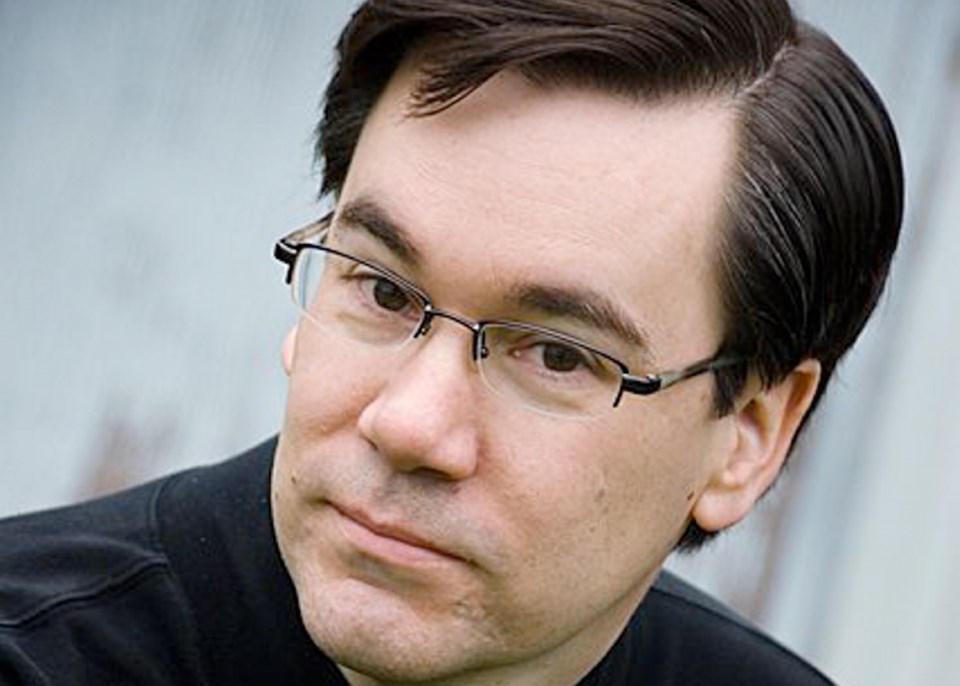What: Victoria Symphony (Masterworks): Wagner’s Lohengrin
When/where: Saturday, May 11, 8 p.m.; Sunday, May 12, 2:30, p.m.; Royal Theatre
Tickets: $33-$86. Call 250-386-6121 or 250-385-6515; online at ; in person at the Royal Theatre and the Victoria Symphony Box Office (Suite 610, 620 View St.)
This weekend, the Victoria Symphony will close out its season ambitiously by performing Act 3 of Wagner’s opera Lohengrin.
It is not uncommon today for orchestras to give concert performances of all or part of an opera, and any increase in the yield of professionally performed operatic music is welcome in a relatively small city like Victoria, where only a few operas can be staged each season. (Lohengrin has never been produced here.)
Completed in 1848, Lohengrin had its première in Weimar in 1850, conducted by Liszt, who would later become Wagner’s father-in-law. It was Wagner’s last opera in the conventional sense, though one can see in it seeds of the revolutionary concept of “music drama” he would develop in the works that followed, beginning with the Ring cycle.
Lohengrin is based primarily on medieval German legends, particularly on the 13th-century epic romance Parzival. The story is set in the Duchy of Brabant (in present-day Holland), early in the 10th century. The German king, Heinrich, has arrived in Antwerp seeking allies to help defend Germany against an invasion from the Hungarians.
In Act 1, Elsa is falsely accused by Telramund, a Brabantine count, of murdering her brother Gottfried, heir to a dukedom Telramund covets. Elsa defends herself by recounting how, after praying, she dreamed of a knightly champion who would establish her innocence through battle. She prays again and a mysterious knight, Lohengrin, appears on a boat pulled by a swan. He vows to defend Elsa’s honour, but only after she agrees never to ask who he is or whence he came, and they pledge themselves to each other. He fights and defeats Telramund (though spares his life), and is named Protector of Brabant.
In Act 2, Lohengrin and Elsa prepare to marry, but the disgraced Telramund and his wife, Ortrud, a pagan witch, sow doubts in Elsa, even accusing Lohengrin of imposture and sorcery. But Telramund and Ortrud are banished, and the wedding ceremony proceeds.
In Act 3, in the bridal chamber, the couple declare their love, though Elsa eventually asks Lohengrin the “forbidden question.” Telramund bursts in with his henchmen, but is killed by Lohengrin, who then publicly reveals his name and origins: He is the son of Parzival and a servant of the Holy Grail. Now that his secret is revealed, he must return to Monsalvat, the castle where the Grail is guarded, despite the pleas of Elsa and Heinrich. The swan appears drawing an empty boat, and it is revealed that the swan is, in fact, Gottfried, whom Ortrud had bewitched. Lohengrin’s prayers revive Gottfried, who is proclaimed Duke of Brabant. Ortrud collapses, and as Lohengrin departs Elsa dies of grief.
This final act, which runs for about an hour, is full of splendid music, including the rousing Prelude (often performed as a concert piece), the Wedding March (a.k.a. Here Comes the Bride), the couple’s tender love duet and Lohengrin’s narration and farewell.
This weekend’s performances, which will be in German with English surtitles, will be conducted by the Victoria Symphony’s music director, Christian Kluxen, and will feature the Victoria Choral Society. The four vocal soloists include two Canadians, soprano Aviva Fortunata (Elsa) and bass Robert Pomakov (Heinrich), along with Norwegian soprano Kari Postma (Ortrud) and New York-based tenor Cooper Nolan (Lohengrin).
Postma sang in Verdi’s Requiem under Kluxen a year ago, and Fortunata, who in October gave a powerful performance as Leonore in Pacific Opera Victoria’s production of Beethoven’s Fidelio, is scheduled to return to the Victoria Symphony next April to sing arias by Mozart. The two men are making their Victoria debuts.
The first half of this weekend’s program comprises the Prelude to Wagner’s Tristan und Isolde and Sibelius’s Symphony No. 7, a complex and highly original single-movement work that includes references to Tristan. Composed in 1924, it was one of Sibelius’s last major works, though he lived until 1957.
Kluxen’s predecessor, Tania Miller, was a champion of Sibelius, and she performed both the Fourth and Seventh Symphonies in a single memorable concert in 2015. Kluxen evidently shares her passion for Sibelius: He will conduct the Fifth Symphony here in November.



